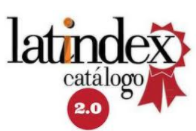The Argentine diplomatic corps:
a career with professional mobility devices at three levels game
DOI:
https://doi.org/10.35305/cc.vi124.63Keywords:
diplomats, policy, devices, politicization, professionAbstract
The process of politicization experimented by Argentina society in recent years contributed to the public visibility of mobility and promotions devices of the diplomatic career, although with varying degrees of institutionalization have existed since the origins of the profession, they acquired more notoriety reflected by much of the press. Taking into account the two levels game described by Putnam, we analyze a sort of third level game or third negotiation inward of the diplomatic corps itself. This level define destinations, mobility and promotions of these "servants" of foreign policy and exceeds the “putnamien” double level game and constitutes a key factor in determining promotions to the highest professional hierarchies. Taking away from the press, we show that far from neutral element, the diplomatic career is strongly crossed by conflicts and tensions of a political nature. The "partisanship" of the diplomatic corps may be exacerbated in strong politicization times, but it’s not exempt in low politicization ones, as would seem to show the media.
Downloads
Downloads
Published
How to Cite
Issue
Section
License

This work is licensed under a Creative Commons Attribution-ShareAlike 4.0 International License.
Aquellos autores/as que tengan publicaciones con esta revista, aceptan los términos siguientes:
- Los autores/as conservarán sus derechos de autor y garantizarán a la revista el derecho de primera publicación de su obra, el cuál estará simultáneamente sujeto a la Licencia Creative Commons Reconocimiento-NoComercial-CompartirIgual 4.0.
- Los autores/as podrán adoptar otros acuerdos de licencia no exclusiva de distribución de la versión de la obra publicada (p. ej.: depositarla en un archivo telemático institucional o publicarla en un volumen monográfico) siempre que se indique la publicación inicial en esta revista.
- Se permite y recomienda a los autores/as difundir su obra a través de Internet (p. ej.: en archivos telemáticos institucionales o en su página web) antes y durante el proceso de envío, lo cual puede producir intercambios interesantes y aumentar las citas de la obra publicada.
















